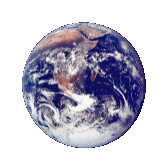|
| September 11, 2012 |
| |
The Scientific Case for Anthropogenic Warming I,
Richard McGehee, School of Mathematics |
| |
|
The scientific evidence for global warming and for the impact of
human activity on the climate will be presented and discussed. |
| |
download slides |
| September 18, 2012 |
| |
The Scientific Case for Anthropogenic Warming II,
Richard McGehee, School of Mathematics |
| |
|
The scientific evidence for global warming and for the impact of
human activity on the climate will continue to be discussed. |
| |
download slides |
| September 25, 2012 |
| |
The Earth's Glacial Cycles,
Richard McGehee, School of Mathematics |
| |
|
For millions of years the Earth has cycled through climate variations involving the advance and retreat of glaciers. The evidence linking these cycles to variations in the Earth's orbital parameters will be discussed. |
| |
download slides |
| October 2, 2012 |
| |
Recent Developments in the Theory of Glacial Cycles, Richard McGehee, School of Mathematics |
| |
|
Paleoclimate data gathered in the last thirty years has challenged previous theories and has given rise to a variety of models. |
| |
download slides |
| October 9, 2012 |
| |
Budyko's Energy Balance Model: To Infinite Dimensional Function Space and Beyond, Esther Widiasih, University of Arizona |
| |
|
Mihail Budyko invented an Energy Balance Model (EBM) that capture the
effect of ice albedo feedback on Earth's temperature profile. This
model implies that Earth climate would be eternally frigid, had it
plunged into a snowball state. Recent augmentation of this model
treats the modeling and analysis of the ice-water boundary, or ice
line, when coupled to this EBM.
In this talk, I will discuss the following three topics: first, the
coupled temperature profile-ice line system, second the existence of
an invariant manifold in this infinite dimensional system. Finally, I
will discuss some ongoing effort extending the coupled system to
capture another climate feedback beyond ice albedo, namely the green
house gas effect, and how it may have saved us from the eternal
snowball state. |
| |
download slides |
| October 16, 2012 |
| |
Contributing Processes to the Mid-Pleistocene Transition, Samantha Oestreicher, School of Mathematics |
| |
download slides |
| October 23, 2012 |
| |
Studying Extreme Climate Events using ORNL's Ultra High Resolution Global Climate Model, Julie Leifeld, School of Mathematics |
| |
|
| October 30, 2012 |
| |
An Introduction to Energy Balance Models, Richard McGehee, School of Mathematics |
| |
|
The physical law of conservation of energy drives many of the fundamental features of the Earth's climate. |
| |
download slides |
| November 6, 2012 |
| |
Budyko's Model as an Infinite Dimensional Dynamical System, Richard McGehee, School of Mathematics |
| |
|
Budyko's energy balance model can be viewed as a dynamical system on an infinite dimensional function space. One can justify the choice of a finite dimensional subspace and can further reduce the system to a one-dimensional attracting invariant curve. |
| |
download slides |
| November 13, 2012 |
| |
Budyko's Model as an Infinite Dimensional Dynamical System, II, Richard McGehee, School of Mathematics |
| |
|
Budyko's energy balance model can be viewed as a dynamical system on an infinite dimensional function space. One can justify the choice of a finite dimensional subspace and can further reduce the system to a one-dimensional attracting invariant curve. |
| |
download slides |
| November 27, 2012 |
| |
A box model approach to ocean circulation, Julie Leifeld, School of Mathematics |
| |
|
|
| |
|
| December 4, 2012 |
| |
The Paleocene-Eocene Thermal Maximum, Jon Hahn, School of Mathematics |
| |
|
The Paleocene-Eocene Thermal Maximum (PETM) was a period of drastic climate change around 55 million years ago, when the average surface temperature rose about 6 degrees. We will discuss the effects of the higher temperatures, theories of processes causing the PETM, and how it compares to our present climate. |
| |
download slides |
| December 11, 2012 |
| |
Dramatic Glacial Events Due to Greenhouse Gas Effects in a Conceptual Climate Model, Anna Barry, IMA |
| |
|
|
| |
|
|
